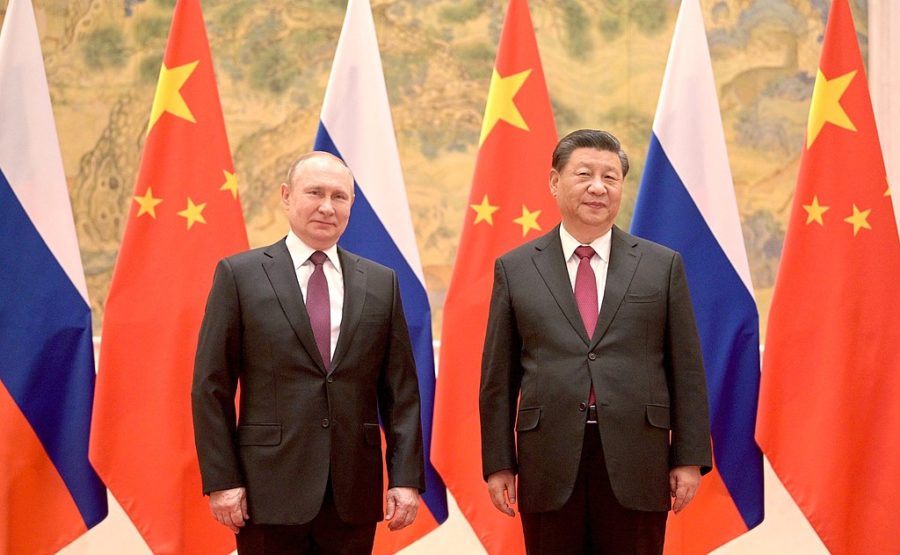Weingarten: A new Cold War, hidden but real
Russian President Vladimir Putin held talks in Beijing with General Secretary of the Communist Party and President of China Xi Jinping.
February 27, 2023
The old Cold War has passed, in theory, that is. The sentiment clearly hasn’t diminished, and this was all the more apparent within the past several days, highlighted by President Joe Biden’s surprise visit to Ukraine and Vladimir Putin’s speech where he declared that Russia will be withdrawing from the Strategic Arms Reduction Treaty(START) nuclear pact (not completely).
This presents obvious issues when analyzing these events in the present but becomes more impactful when you view it in terms of its historical value. Many don’t pay much attention to the tensions between the U.S. and Russia — or the U.S. and China for that matter — and partly for good reason, but also for reasons that are more concerning. Panic and unrest can begin to settle into the social fabric if war becomes the central focus, but without these sorts of disturbances, there is virtually nothing we can do in the international landscape. The question that is raised by readers is if we have any influence at all.
I have covered this extensively in other articles so without exhausting the subject, I will answer simply and say, “Yes, we do in fact have an international presence that functions within the territory of a single nation.”
I would even go as far as to say that it’s imperative we divide our attention between domestic and international issues. But this means applying the same forms of questioning and protest to international events by pressuring these governments to conform to the people.
Why could a new Cold War be on the front? Well, the Chinese seem to be taking particular interest in our bases and technology here at home, and Russia doesn’t seem to be easing up on Ukraine.
In fact, a modern Cold War is on our horizon. It’s going to be characterized by economic bombshells and implicit control. One cannot be sure how this will play out, but just because a physical war may never reach American borders, it is important to identify the multitude of ways in which we can be affected. Highly sophisticated surveillance and technological warfare will be the chosen form of combat, and it will reach us in ways that we might not even notice.
It isn’t hard to see where this impacts our most fundamental freedoms. Our ability to think, process information and act on it will all be manipulated even more in light of a potential war with the East.
A war that has never left.

















